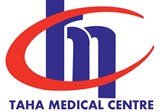The body’s immune system is its first line of defence in case of any danger due to intrusive germs or other particles. In cases where the immune system has an abnormal reaction to a particular foreign substance which is otherwise harmless to other people, the substance is referred to as an allergen and the body’s response is in the form of an allergy. An allergy can develop in children or in adults, and in some cases, the body may react adversely to a substance that it considered harmless earlier at a later time in life.
Different Types of Childhood Allergies
Allergies are common among children, especially those who come from families that have a history of allergies. By identifying the allergy and its triggers early on, it becomes possible for the child to have a much better quality of life. Allergies are mainly of two broad types – food allergies and environmental allergies. \
Identifying Food Allergies
While any food can trigger allergy in children, the major food allergens that have been identified by the Food Allergen Labelling and Consumer Protection Act of 2004 (FALCPA) in the US are milk, eggs, fish, Crustacean shellfish, tree nuts, peanuts, wheat, and soybeans, while sesame has also been recently identified as a major food allergen.
Common Warning Signs
Food allergy symptoms and their intensity may depend on multiple factors including the quantity of the food (containing the allergen) that was consumed by the child. Common symptoms of food allergy include skin rash, hives, swelling of the face, tongue, lip, throat or vocal cords, dizziness and nausea, vomiting, abdominal cramps, diarrhoea, a tingling sensation in the mouth, inability to breathe, or loss of consciousness. While most of the symptoms may cause just a temporary discomfort, sometimes the allergy may progress into a life-threatening reaction referred to as anaphylaxis, which causes the throat and larynx to swell up constricting the airways in the lungs and causing severe drop in blood pressure, leading to anaphylactic shock.
What to Do In Case of Food Allergy Reaction
If the person has a known food allergy or someone in the family has the food allergy, and the person exhibits symptoms of an allergic reaction, it is important to adopt these three measures immediately:
- Ensure that the person stops eating the food item immediately
- Evaluate whether it is a mild discomfort or if the distress requires emergency medical treatment
- Contact a medical professional or helpline and seek medical intervention.
Dietary Modifications for Children with Food Allergies
Once a food allergy has been identified through observation, medical testing and evaluation by a pediatric specialist, it becomes easier to avoid eating the foods that cause the allergic reactions. It is important to always read the food labels carefully to check for the food allergen, even if it is in very minute quantities. When eating out at a restaurant or at a place where the host is unaware of the child’s diet restrictions, it is recommended to inform the hosts in advance about the allergens and what food the child needs to avoid. In case the allergen is accidentally ingested, it is important to recognize the symptoms of allergic reaction shown by the child and to ensure access to appropriate medical care.
Environmental Allergens
A child who frequently has a runny nose or sneezes often is very likely to have an allergy to something in the environment. The allergen triggers the release of chemicals in the body including histamine, which irritates the nose, eyes and throat, and may lead to coughing or wheezing as well. Allergic rhinitis is a very common allergic reaction to environmental allergens, especially in children.
Allergic Rhinitis or Hay Fever
Triggered by pollen from trees, grasses and weeds, mould spores, or pet fur or dander, allergic rhinitis irritates the nose, eyes, throat and sinuses of children. Children suffering from the allergy often show symptoms of runny nose, sneezing, itchiness in the nose, eyes, ears, throat and roof of the mouth, nasal congestion, and postnasal drip (excess mucus dripping down the back of the throat from the nose or sinuses).
How to Spot and Avoid Environmental Allergens
In addition to the symptoms mentioned earlier, common symptoms of allergy from triggers in the environment include headaches, nosebleeds, blocked or congested ears and frequent ear infections, mouth breathing and snoring. Since these symptoms can also be a sign of other illnesses, it is important to contact a pediatric specialist who can evaluate and provide an accurate diagnosis of the allergens and their reaction.
Just like in the case of food allergens, the best way to control allergy from environmental factors is to avoid the triggers. Once the allergen has been identified, the child’s environment should be controlled as much as possible. For example, if the trigger is pet fur, then the child should be kept away from pets. If it is pollen grains or level of dust or environmental smoke that triggers an allergic reaction, the child should be kept in an air-controlled environment to the extent possible.
In case the child develops an allergic reaction, medication prescribed by the pediatric specialist should be used to manage the condition. Depending on the severity of the allergy and the extent of symptoms present, the pediatric specialist may prescribe oral antihistamines, allergy shots, nasal sprays or other medication.
Best Medical Clinic in Abu Dhabi for Diagnosis and Treatment of Childhood Allergies
With over three decades of experience in the healthcare sector, Taha Medical Centre is the best medical clinic in Abu Dhabi for the accurate diagnosis and treatment of childhood allergies. With highly-qualified and experienced pediatric specialists, medical staff, extremely efficient emergency services, a fully-equipped laboratory and a well-stocked pharmacy, Taha Medical Centre can provide healthcare services of an international standard in an environment that is secure, hygienic and comfortable for the patients.

